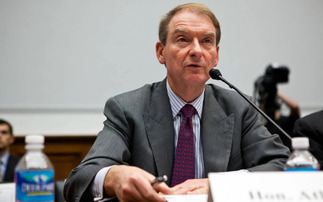Advisers should be forming judgements about the likelihood of developing market crises and discussing them with clients, writes Dr Quintin Rayer, head of research at P1 Investment Management.
Secular trends
Meanwhile, secular trends can change the investment landscape, creating new opportunities while undermining others. Some investors may correctly anticipate trends and others, not.
Election results or national referendums may turn slight popular biases into outcomes, which can overturn the consensus view.
Examples include:
• Rising nationalism, including Brexit, with potential for protectionist trade policies in contrast to previous eras of increasing free trade.
• New technologies, such as the internet dotcom stocks bubble in the late 1990s (although this is hardly a recent phenomenon, considering the 1840s railroad and 1793 canal building manias).
• Ageing populations, increasing demand for healthcare and pension drawdown.
People and politics
Human nature may lead to over-anticipation of future developments and exaggerated valuations. People prefer simple explanations, and prefer any explanation rather than none. Unfortunately, that does not mean they are correct.
Financial sector leaders may believe that innovations have genuinely added value while underappreciating new risks. Product providers may be responding to inappropriate incentives in less-well-regulated areas.
Governments may maintain a balance between producers and consumers to assure fair market prices. However, other forces are present, with constituencies attempting to influence governments including by polling (the 'will of the people').
Governments respond to political influences to silence critics and to help them stay in power.
Market events can provoke responses from authorities, which although intended to address present difficulties, may sow the seeds of future problems (such as quantitative easing). The outcomes can lead to financial bubbles, as governments create artificial criteria to achieve political goals.
What to do?
Advising on investments with these uncertainties is challenging. Conventional risk measures are unlikely to capture these risks, however stress-testing portfolios may help.
With support from managers, advisers can identify issues and construct scenarios of possible outcomes that attempt to quantify risks.
If test results impact portfolios unacceptably, they can be restructured to make them more robust to the scenarios considered.
Global watchdog warns next financial crash could come 'with a vengeance'
Anticipating market crises is not easy, advisers have to overcome their human biases, and political and economic systems that can leave markets vulnerable.
Advisers should be constantly on alert, particularly during periods when markets appear sound and are generating consistent returns.
Although difficult, advisers should be forming judgements about the likelihood of developing market crises and discussing them with clients.
These conversations should help ensure clients have a more complete understanding of the risks of their investments, and facilitate a better discussion around portfolio investment allocations.
Follow Investment Week on LinkedIn













